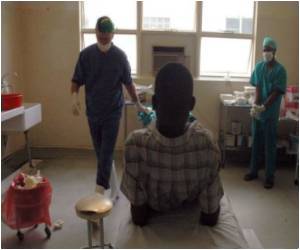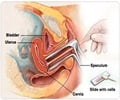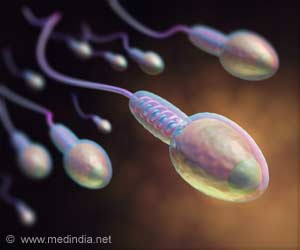A study by University of North Carolina has found that circumcision in males can reduce prevalence of penile precancerous lesions among men in Kenya.

"Our data are the first to show that male circumcision may reduce HPV-associated penile precancerous lesions. This represents an additional public health benefit of male circumcision," said Jennifer Smith, senior author.
"The percentage of men with HPV-associated precancerous penile lesions was substantially higher among those who were not circumcised - 26 percent- compared to those who were circumcised - .7 percent," explained Smith, a associate professor of epidemiology in the UNC Gillings School of Global Public Health and a member of UNC Lineberger Comprehensive Cancer Center.
"Interventions that reduce HPV-associated penile lesions could be important to both men and women, because such lesions may increase HPV transmission from men to their sexual partners.
"Circumcision may also provide a useful intervention to prevent HPV-associated penile lesions and ultimately invasive cervical cancers in less developed countries, since prophylactic HPV vaccines may not be readily available to men, and current HPV vaccines do not include protection against all high-risk HPV types," added Smith.
The study has been published in the International Journal of Cancer.
Advertisement














